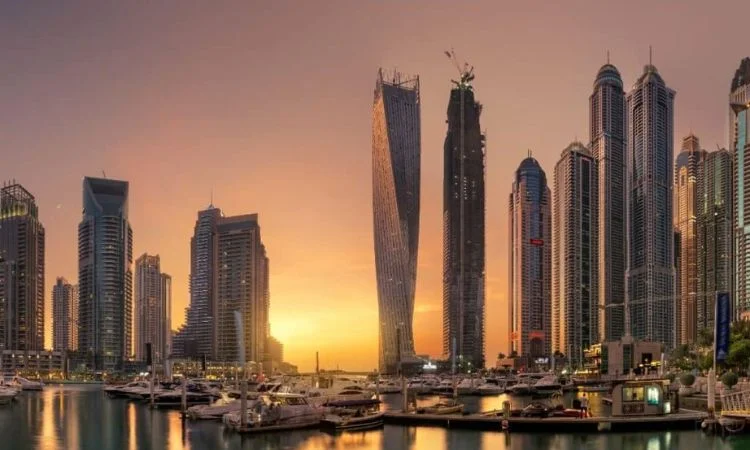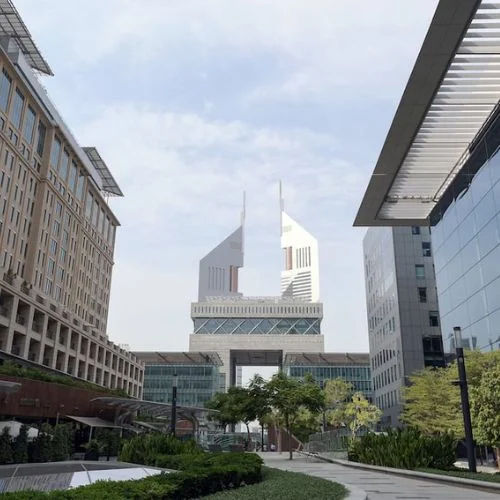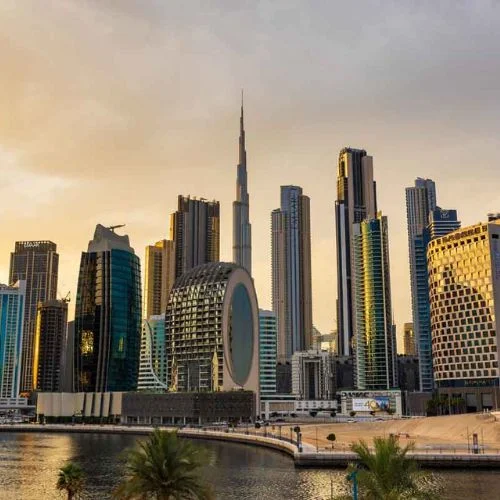Record-Breaking Transactions and Sales Value
Dubai’s residential sector has seen stellar growth for the first half of 2024. As per Engel & Völkers Middle East, there were 77,233 transactions, indicating a rise of 33.5% YoY. The total sales value surged to AED 227 billion—about $62 billion—with a 31% increase compared to H1 2023. This overarching performance depicts strong investor confidence and sustained demand in Dubai’s property market.

PC: Arabian Business
Off-Plan Market and Popular Communities
This has been supplemented by the off-plan segment, which provided over 60% of overall transactions. Among a few major points, it has been aggressive new development prices, flexible payment plans, and an extremely high return on investment that seem to resonate with many investors eyeing new projects. Popular areas like Jumeirah Village Circle, Dubai South, and Damac Hills 2 stand out due to their affordability, modern amenities, and strategic locations.
Apartment Sales Lead the Way
The rise in transactions has been strongly contributed by apartments, which account for 91 percent of the increase. With apartment sales of over 80 percent of all transactions, their affinity, availability, and higher returns have spiked demand up significantly by 41 percent year-over-year. Jumeirah Village Circle continues to be one of the most in-demand areas for both off-plan and secondary market transactions, amid price attractiveness with a stable supply of projects.
Villa Segment Growth
Despite the smaller size of the villa segment, H1 2024 still posted strong year-on-year growth. This was represented in both the number of transactions and total sales value, with increases of 52% and 66%, respectively. It is families seeking more space and sophisticated buyers chasing primary properties that are driving demand. New communities like The Acres, Dubai South, and Haven, with their location and lifestyle amenities, fueled off-plan villa sales.
Resilience and Market Performance
Despite the April floods, Dubai’s real estate market is resilient. May 2024 put up an unprecedented increase of 20% compared to earlier monthly transaction records, displaying the strength and resiliency of the market. Confidence is also instilled by these key ongoing infrastructure initiatives: a USD 8 billion drainage system, a USD 35 billion Al Maktoum Airport expansion, and a USD 5 billion Dubai Metro Blue Line development.
Luxury Market Grows
In contrast, Dubai’s luxury real estate sector remains hot, recording 47% year-over-year growth in transactions. UAE will continue to be the destination that receives the most millionaires across the world, stoking demand for high-end villas and branded residences in 2024. Palm Jumeirah is still the leading luxury community, followed by Mohammed Bin Rashid City and Dubai Hills Estate, an epitome of family-friendly environments complemented with high-end amenities. Other developing areas that appeal to luxury purchasers include the Dubai Islands and Palm Jebel Ali.
Positive Outlook
According to Daniel Hadi, chief executive at Engel & Völkers Middle East, growth in Dubai’s residential real estate market was simply extraordinary in H1 2024. He said it had been driven by the emirate’s resilience, strategic investments in infrastructure, and its appeal to investors from all over the world. Providing an additional boost to the city, whose population is expanding by more than 100,000 every year and whose economy is expected to grow 4% this year, means the prospects for Dubai’s real estate market remain very bright.















